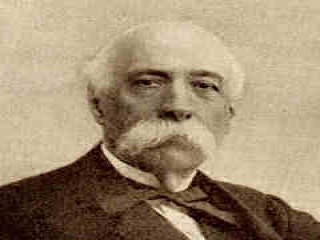
Francesco Crispi biography
Date of birth : 1819-10-04
Date of death : 1901-08-11
Birthplace : Ribera, Sicily
Nationality : Italian
Category : Politics
Last modified : 2011-05-09
Credited as : Statesman, premier of Italy,
The Italian statesman Francesco Crispi fought for Italian unification and twice served as premier of Italy.
Francesco Crispi was born on Oct. 4, 1819, in Ribera, Sicily. After studying law at the University of Palermo, in 1846 he became an attorney in Naples. He took an active part in the revolutionary struggle of 1848-1849, and after its failure he fled to Piedmont, where he engaged in radical journalism. Implicated in Giuseppe Mazzini's attempt to foment revolt in Milan in 1853, Crispi was expelled from Piedmont. In the following years he lived in Malta, London, and Paris and traveled throughout Europe.
In 1859 Crispi returned to Sicily and rejoined the independence movement. The following year he participated in Giuseppe Garibaldi's campaign in Sicily. When the kingdom of Italy was proclaimed in 1862, Crispi was elected deputy to the first Italian Parliament and became a leader of the left opposition to the premier, the Conte di Cavour. Although a zealous republican, in 1865 he became a supporter of King Victor Emmanuel II, after deciding that the monarchy could accelerate national unification.
In 1876 Crispi was elected president of the Chamber of Deputies. In December 1877 he became minister of the interior, but in March 1878 he resigned after being accused of bigamy. Although acquitted, he withdrew from political life for several years.
In 1887, after again serving briefly as minister of the interior, Crispi became premier. He broadened communal and provincial self-government, bettered public health conditions, and approved a more liberal penal code. However, he introduced severe regulations concerning public order and gave civil authorities the power to prohibit meetings and restrain freedom of association.
In the area of foreign policy Crispi supported Italian colonialism in Africa. He extended and unified Italian acquisitions in Africa and imposed an Italian protectorate on Ethiopia. He sought support of this policy from Germany and Austria-Hungary, Italy's allies in the Triple Alliance. Angered at French expansion in Africa, in 1887 Crispi influenced Parliament to refuse to renew the Italian commercial treaty with France. There then began a 10-year tariff war which greatly damaged the Italian economy.
In 1891, because of the unpopularity of his tariff and tax policy, Crispi was forced to resign. But in 1893, in an atmosphere of internal strife resulting from peasant riots and the growing worker movement, he again became premier. He outlawed all Socialist societies and associations of peasants and workers and disfranchised hundreds of thousands of Italians. He did not convoke Parliament in 1895 but ruled for 6 months as dictator.
Crispi continued his aggressive policy in Africa. But in 1896, following the crushing defeat of the Italian army at Adowa, Ethiopia, he was again forced to resign. He then lived in poverty and oblivion in Naples until his death on Aug. 11, 1901.
















